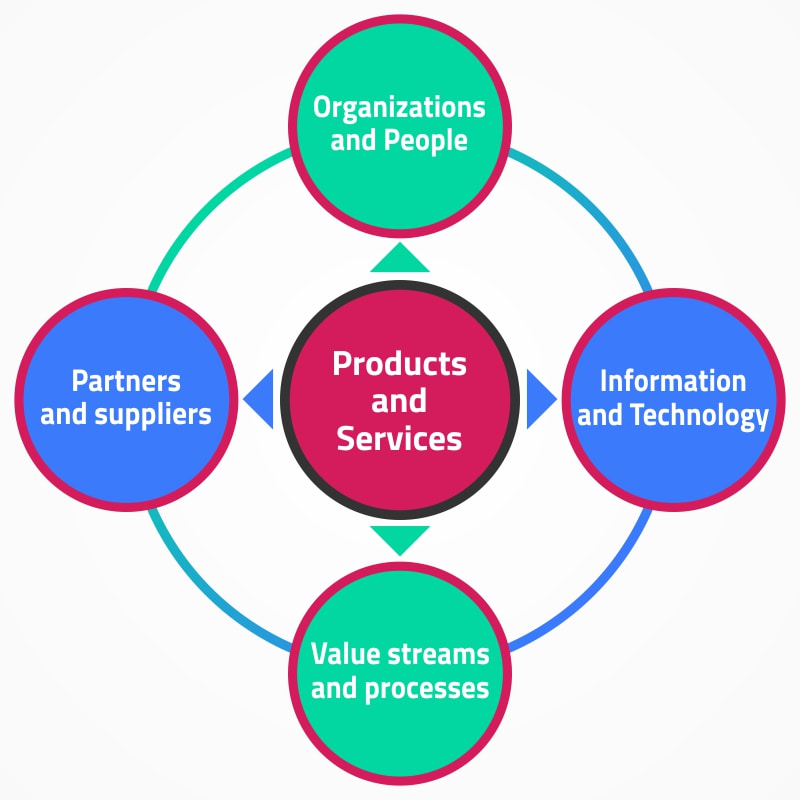What is ITIL?
This question has been answered multiple times by various IT experts and professionals who’ve aimed to simplify the complexity of understanding a topic as vast as the IT Infrastructure Library (ITIL). Some have succeeded but most descriptions are too complex for a person who is just getting acquainted with their ITIL journey. In this blog, we aim to explain ITIL and its significance to professionals who are paving their way to becoming ITIL certified.
A simplified answer to this question is as follows.
ITIL provides a systematic approach and structured framework for planning, building and running IT services with the ultimate focus of creating value for the organization.

Now let’s deep dive and understand ITIL and its significance in detail.
The inception of ITIL dates back to the 1980s, when it was set up as a pre-eminent framework for a set of consistent and well-defined processes, incorporating the best practices for digital and IT operations. It paves the way for organizations to deliver cost-effective IT Service Management (ITSM) tools, aligned with their strategy and core vision. The ITIL approach is used by organizations for guidance on how to use IT as a tool to facilitate business transformation. The 4th Industrial Revolution has led to companies going digital and investing not just a significant amount of money but also time. ITIL works as an approach which helps in delivering and creating more value for the organization.
The dust has only just settled, post introduction of the latest version of ITIL – ITIL 4. ITIL 4 is the latest version of ITIL and was published by AXELOS. AXELOS is a joint venture between the UK Government and Capita, a private equity investor. Various individuals and companies alike are focusing on adopting the new ITSM practices and migrate from ITIL v3 to ITIL 4. ITIL 3 Foundation level credentials, continue to remain valid but all ITIL 4 certification levels have been rolled out in 2020. Candidates and professionals are being encouraged to pursue ITIL 4 certification and any intermediate candidates still pursuing ITIL 3 certification can transfer the ITIL 3 credits to move onto the higher-level ITIL 4 certifications.

Four Dimensions of Service Management in ITIL 4
The ever-growing popularity of ITIL
ITIL v4 certification is globally accepted and recognized, and has gained massive popularity over the years for professionals and organizations alike. The growing significance of ITIL has a major impact on IT professionals who are able to chart their career ladder and organizations who effectively adopt cost-efficient IT frameworks.
Impact on IT professionals
An ITIL certified professional stands out in the crowd, as an employer highly benefits in employing IT professionals who understand the concepts and benefits of ITIL. It reflects the candidate as someone who is aware of the ITIL framework and understands how the approach benefits the organization. This opens the door for several opportunities for these professionals. An ITIL certified professional can shape a better career graph as the certification enhances their existing skillset and opens the gateway for various career paths such as service strategy, service operations and project management.
Impact on organizations
Organizations who adopt ITIL practices see an improved client experience as customer satisfaction is one of the key focus areas of ITIL 4 principles. There is a direct correlation between improved customer experiences and IT services when all the functionalities within a business “talk” to each other. This common language and IT translation improves when organizations adopt ITIL practices at every level successfully. ITIL 4 is adopted not just by the IT service desk but also other functionalities such as HR, who use this framework to improve their digital approach.
The principles of ITIL 4 have enabled organizations to take a holistic approach in the way services are conceptualized and managed. They have brought the value of co-creation to the forefront by making a paradigm shift to people and culture. Large organizations have successfully achieved a lot of success by initiating ITIL principles and small-sized enterprises are now following suit.
Constructive application of the knowledge and skills derived from this certification can go a long way in achieving exponential success.

